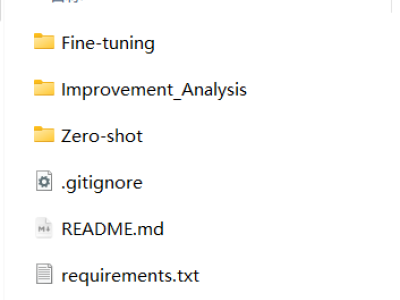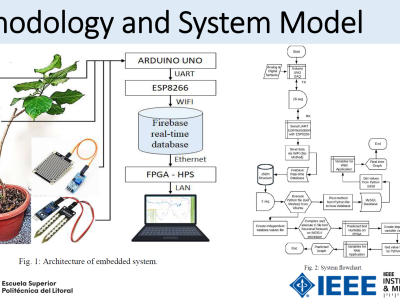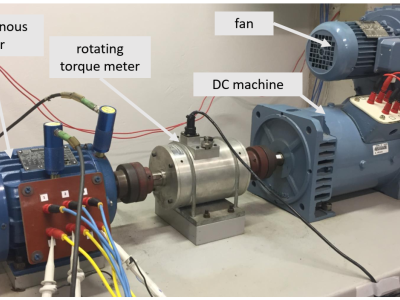DecoderLLMs-CodeSearch-main

- Citation Author(s):
-
Yxuan Chen
- Submitted by:
- Yxuan Chen
- Last updated:
- DOI:
- 10.21227/4vsj-cq50
- Research Article Link:
 121 views
121 views
- Categories:
- Keywords:
Abstract
Code search is essential for code reuse, allowing developers to efficiently locate relevant code snippets. Traditional encoder-based models, however, face challenges with poor generalization and input length limitations. In contrast, decoder-only large language models (LLMs), with their larger size, extensive pre-training, and ability to handle longer inputs, present a promising solution to these issues. However, their effectiveness in code search has not been fully explored.
To address this gap, our study offers the first systematic evaluation of decoder-only LLMs for code search. We assessed nine state-of-the-art decoder-only models, employing two fine-tuning methods, two datasets (CSN and CoSQA$^+$), and three model sizes. Our results show that fine-tuned decoder-only models, particularly CodeGemma, significantly outperform encoder-only models like UniXcoder. On the CSN dataset, CodeGemma achieved a 12.1\% improvement in Mean Reciprocal Rank (MRR) over UniXcoder, and on the CoSQA$^+$ dataset, it outperformed UniXcoder with a 49.6\% increase in Mean Average Precision (MAP). These findings highlight the superior adaptability and performance of decoder-only models, especially after fine-tuning, in generalizing across unseen datasets.
Our analysis further reveals that fine-tuning on code-specific datasets, employing supervised contrastive learning, and increasing model size contribute to performance gains. Despite the higher computational costs, decoder-only LLMs demonstrate greater training efficiency and generalization on limited data compared to smaller encoder-only models.
Instructions:
Are Decoder-Only Large Language Models the Silver Bullet for Code Search?
This repository contains the code and datasets for the paper "Are Decoder-Only Large Language Models the Silver Bullet for Code Search?" Our work is divided into three main parts: zero-shot tests with decoder-only LLMs, fine-tuning tests with decoder-only LLMs, and improvement analysis. This repository provides the necessary code and data to reproduce our results.
Each section has its own dedicated directory containing all relevant scripts. Below, we provide an overview and demonstration example for each section.
Experimental Environment
Hardware:
- CPU: Intel(R) Xeon(R) Platinum 8360H CPU @ 3.00GHz
- GPU: 2 × NVIDIA A800 80GB GPUs
- RAM: 2.0 TB
Software:
- Operating System: CentOS Linux release 7.9.2009 (Core)
- Python: 3.8.19
- PyTorch Version: 2.3.0+cu121
- CUDA Version: 12.1
Dependencies
To install the necessary dependencies, run the following commands:
cd decoder-only-code-search
pip install -r requirements.txt
Datasets
The datasets can be accessed via this Google Drive link. The dataset structure is as follows:
Dataset
|__CodeSearchNet
|__CoSQA_Plus
|__Train
|__CSN
|__E5
|__MNTP
|__SimCSE
Zero-Shot Test
All scripts for zero-shot code search are located in the Zero-shot directory. These scripts measure distances using cosine similarity. Below is an example of testing CodeGemma on the CodeSearchNet dataset. Additional examples can be found in the same directory.
cd decoder-only-code-search/Zero-shot
python CSN_Test_Decoder_Model.py \
--model_name_or_path google/codegemma-7b-it \
--result_path CSN-codegemma \
--test_data_path_dir ../Dataset/CodeSearchNet \
--embedding_batch_size 500
Example output:
Loading checkpoint shards: 100%|██████████| 3/3 [00:05<00:00, 1.78s/it]
Evaluating language: python
Shape of data_code: (22176,)
Each batch contains 500 data
Processing batches: 100%|██████████| 45/45 [04:01<00:00, 5.38s/it]
python MRR Score: 0.10966641818108162
Evaluating language: go
......
Fine-Tuning Test
All scripts for fine-tuning code search models are in the Fine-tuning directory. These scripts also use cosine similarity to measure distances. Below is an example of fine-tuning CodeGemma on the CodeSearchNet dataset. More examples can be found in the Fine-tuning directory. Note that before running the fine-tuning test, the model needs to be fine-tuned. Detailed instructions can be found in the Fine-tuning Method directory.
cd decoder-only-code-search/Fine-tuning
python CSN_Test_Finetuning_Decoder_Model.py \
--model_name_or_path google/codegemma-7b-it \
--peft_model_name_or_path finetuning_model \
--result_path CSN-finetuning-codegemma \
--test_data_path_dir ../Dataset/CodeSearchNet \
--embedding_batch_size 500
Improvement Analysis
All scripts for improvement analysis are provided in the Improvement Analysis directory.







